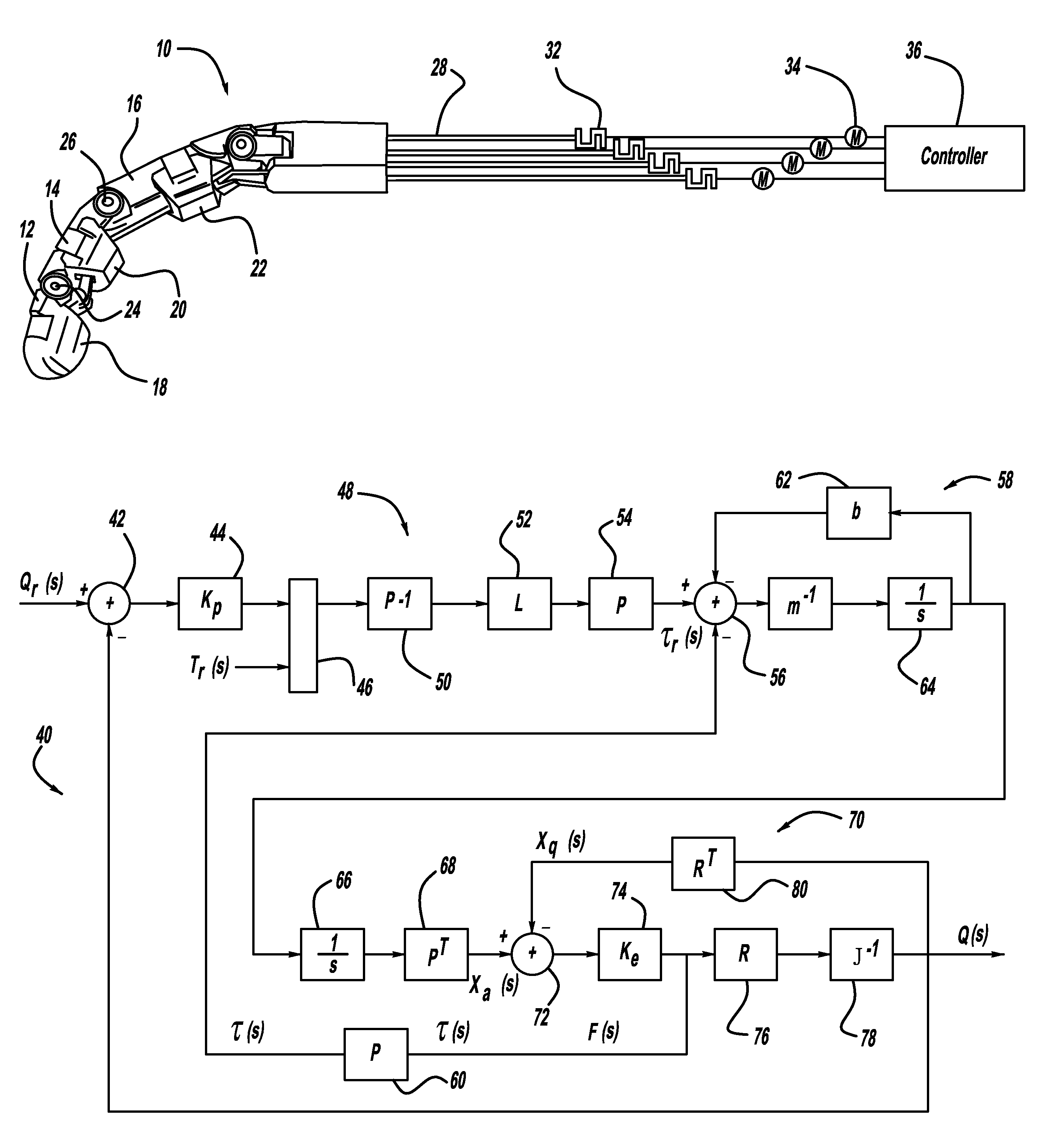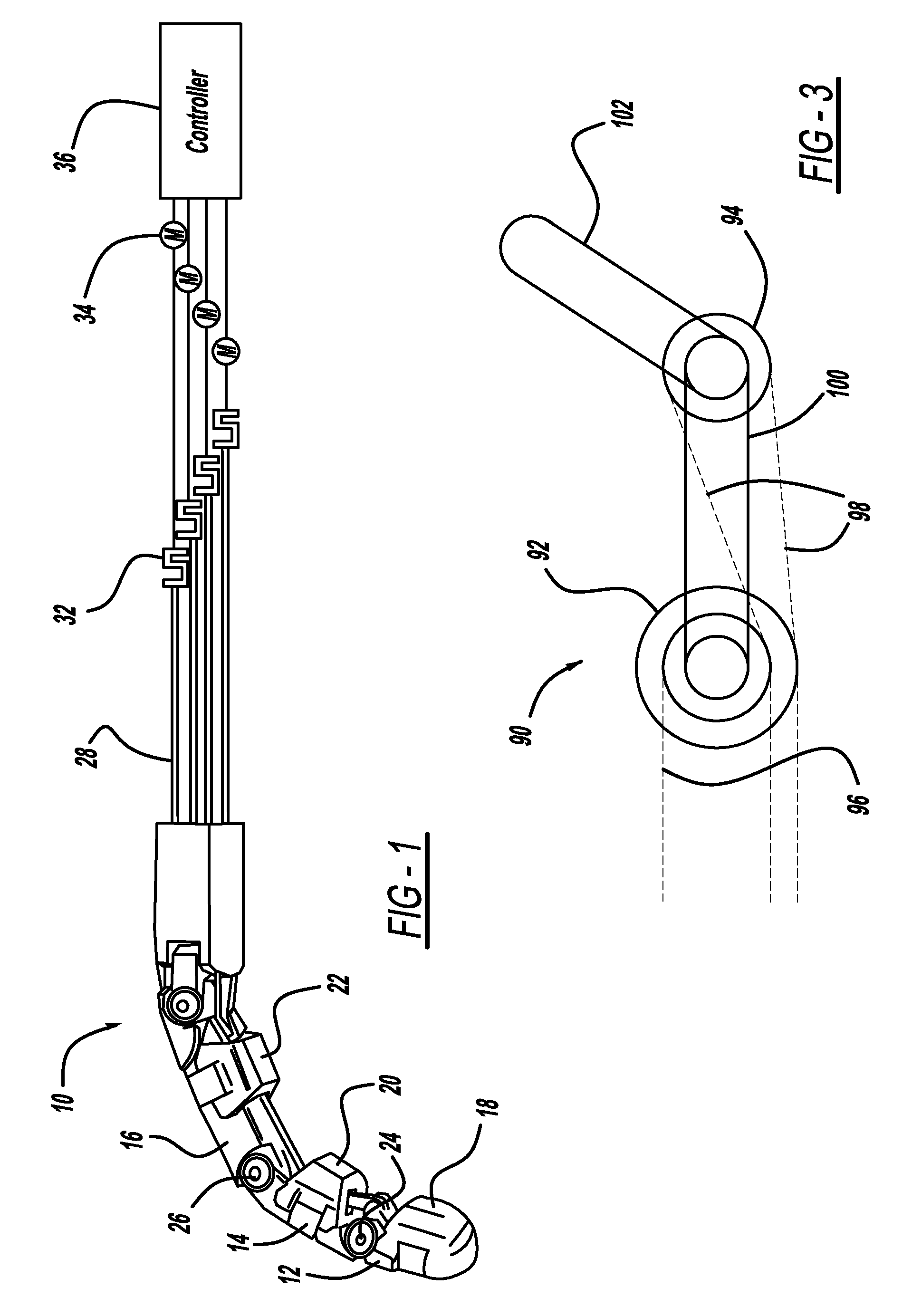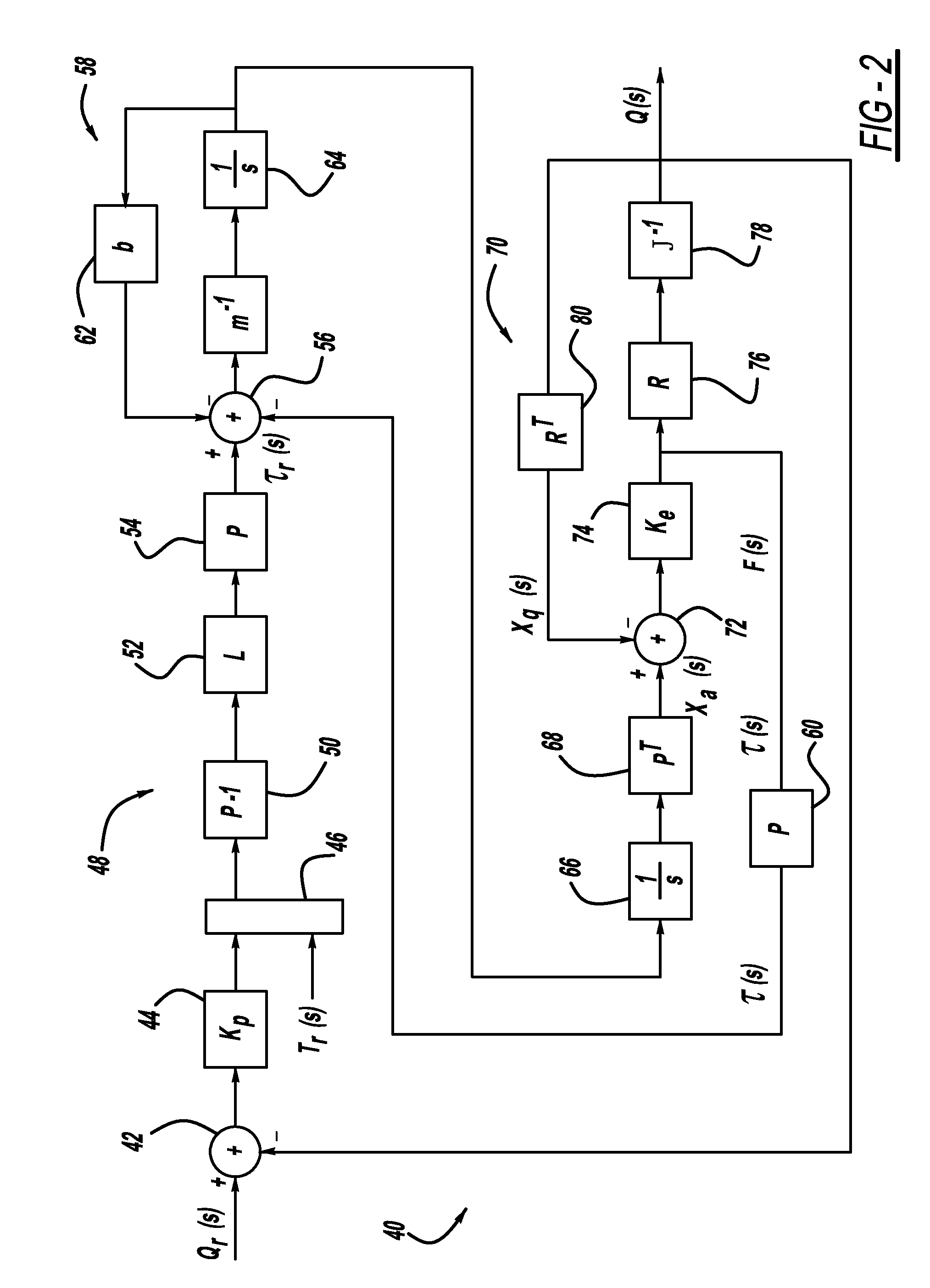Joint-space impedance control for tendon-driven manipulators
a tendon-driven manipulator and joint-space technology, applied in the field of system and method control of tendon-driven manipulators, can solve the problems of robotic manipulator undesired motion and extra control burden
- Summary
- Abstract
- Description
- Claims
- Application Information
AI Technical Summary
Problems solved by technology
Method used
Image
Examples
Embodiment Construction
[0014]The following discussion of the embodiments of the invention directed to a system and method for controlling tendon-driven manipulators is merely exemplary in nature, and is in no way intended to limit the invention or its applications or uses.
[0015]The following embodiments apply the present invention to the control of a tendon-actuated finger. However, the present invention can be applied to any tendon-driven robot manipulator. Consider the perspective view of a robotic finger 10 for a robotic arm shown in FIG. 1. The robotic finger 10 includes three finger sections, namely, a tip section 12, an intermediate section 14 and a base section 16. The tip section 12 includes a pad 18, the intermediate section 14 includes a pad 20 and the base section 16 includes a pad 22 that allow the finger 10 to effectively grasp a particular part (not shown). The finger sections 12, 14 and 16 and the pads 18, 20 and 22 can be made of any suitable material, such as aluminum, for a particular ap...
PUM
 Login to View More
Login to View More Abstract
Description
Claims
Application Information
 Login to View More
Login to View More - R&D
- Intellectual Property
- Life Sciences
- Materials
- Tech Scout
- Unparalleled Data Quality
- Higher Quality Content
- 60% Fewer Hallucinations
Browse by: Latest US Patents, China's latest patents, Technical Efficacy Thesaurus, Application Domain, Technology Topic, Popular Technical Reports.
© 2025 PatSnap. All rights reserved.Legal|Privacy policy|Modern Slavery Act Transparency Statement|Sitemap|About US| Contact US: help@patsnap.com



